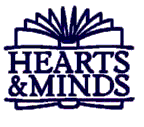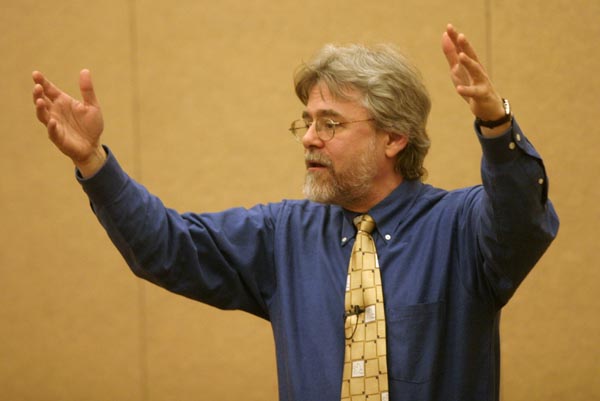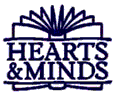As you know, I have written passionately about my own journey as a follower of Christ and how that has led me to embrace many causes and concerns about social justice, peacemaking, racial justice and the like. In July, at my monthly book review column, I commented on books by Ron Sider and other important resources for those who want to respond to God’s call to be agents of Christ’s justice. It tells some of the "Hearts & Minds story" and suggests some important books, so please check it out if you haven't by clicking
here.I recently read two articles in last week's
New York Times Sunday Magazine which I promptly wrote to a dear, dear friend about. He is a Biblically faithful and very wise leader of those who desire to make a difference in the world and the fruit of his ministry can be seen in folks taking up challenging and important work all over the world, inspired by this guy's mentoring care.
I wanted my friend to read these two pieces---one a wrong-headed but important critique of agencies like International Justice Mission which works to rescue children out of sexual slavery and the other a brief reflection on an aid worker in Haiti who was kidnapped and robbed. For those of us who care about these things, and who involve ourselves (or try to get others involved) these are the kind of things that come up.
So: no big book reviews today, but it is worth logging in to the
Times on line (for free) to read these brief pieces.
Here is an expanded version of some of what I wrote to my friend:
...Anyway, I wanted to tell you about a piece I read in the
New York Times Sunday Magazine last Sunday, which offered some interesting critiques of the work of our friends at the
International Justice Mission (IMJ) and other rescue groups. Rosemary Barbero, who works out of Cambodia, a woman whose work the story explores, organizes prostitutes and garment workers and thinks that the rescue efforts (except when applied to children, as IJM most-often does) may make matters worse.
You know that I/we have long talked about and worked for the reform of institutions and, when it comes up with younger students, they wonder if all institutions can be restored in normative ways. What does it mean to bring God’s principles into every kind of social organization or cultural pattern? Can every institution be reclaimed in a Godly fashion? What about advertising, Hollywood, giant corporations, the military? Yes, yes, we say (well, at least I do!) Sometimes, though, there are some organizations (organized crime) or cultural patterns that simply cannot be reformed. Prostitution, for instance, is so thoroughly wrong that we must say that it cannot be "redeemed" but only eliminated. (It is, as all sin, though, a serious distortion of a creational good—sexual activity is not of itself wrong, of course. But an institution that traffics in such an obviously evil distortion of God’s intentions cannot be reformed. It must be resisted.) So I would imagine that we would agree with efforts to link foreign aid programs to anti-prostitution measures, as the Bush administration has done. (The fascinating story that I mentioned starts off by noting that the government of Brazil recently rejected $40 million in American AIDS financing because of restrictions the U.S. would have imposed on groups that work with prostitutes.)
So, in this article, Ms Barbero, an aid worker and experienced human rights activist, says, (through secular lenses that do not have a Biblical view on these things, of course) that after being “rescued” women are then consigned to violence and the indignity of sweatshops, which she maintains is a worse option. She opposes these uniform efforts to link foreign aid to shutting down brothels, and suggests that organizing prostitutes is a step in the right direction of self-determination and safety, etc. She wonders if some highly-publicized rescues are self-serving, with the agenda of the rescue group more important than the actual lives of the actual people they are trying to help. It is a case she doesn’t exactly document in any detail, but the charge made me think; at the very least it was another voice in the complex matter of creating movements for social transformation.
Reading Rich Christians in an Age of Hunger or being active in
Bread for the World sure does take us a long way into the world of global justice, but it never got to the details of this! We sure do have a lot to learn!
I gag at Ms Barbero’s assumptions about some of this, of course, but still think it is a critique we need to hear and respond to. (And I am sure Gary Haugen or the staff of IJM is well equipped from a Christian worldview to thoroughly do so; perhaps he should write a piece in to the
Times.) We should think about her critique, though. Is severe economic exploitation ever worse than sexual exploitation? Are safer brothels better than unsafe ones? And how does the economics of poverty create a climate for women’s opting to be involved in such sad matters? [And, if you read my book review column in July you may note that I commented on a great new book,
Travels of a T-Shirt that suggests "sweat shops" are not as bad, given the options, as we sometimes make them out to be, especially for women. I would be interested in Barbero’s reply; in
Travels... the author suggests that in China, many garment factory workers use their first paychecks to pay off the guy who had previously paid a dowry that would have consigned the women to an arranged marriage. Working in the factory, it is argued, is a step up the ladder, away from the injustices of the traditional village.]
So, for the record, I do not agree with the woman interviewed in this anti-rescue story, but since I know you sometimes mention this topic in your public speaking, and have been helpful to Gary H at key moments in the formation of IJM (do you recall that you had him call me when he was still at the State Department; I still feel honored to have had that simple conversation) and that your heart has had you follow these human rights struggles, I thought you may want to see this important little story, hear of this woman's "on the ground" alternative plan, and wonder how to be Biblically faithful and structurally wise in efforts to build systems that can truly help. I am sure the staff at IJM have heard this criticism before, but to see IJM mentioned in the
New York Times Magazine in this rather off-handed way which implies they aren't really helping as much as they think they are was shocking. It is worth reading.
The Question of Rescue by Matt Steinglass (7-24-05.)
* * *
By the way, in the same
New York Times Sunday Magazine issue last week (7-31-05) there was a very, very moving story of a woman who has worked in Haiti much of her adult life, in a family planning non-profit. She was kidnapped, nearly killed, robbed by desperate men and she told of her ordeal, her anguish and yet her understanding of conditions that have created such despair and anger.
She writes,
The strange thing was that I knew the men who were doing this. I don’t mean that I knew them personally, but I knew all about them. I’m a medical anthropologist, and I went to Haiti to help solve the public health problems resulting from too many people in too little space. I believed that family planning would help. I spent 10 years living and working with the masses in Cite Soleil---a harsh, urban landfill in Port-au-Prince…In many ways, I had watched the gunmen grow up…
The rest of the piece is riveting and you should read it for yourself. She hopes to return again someday, but for now, she says, must give her "Haiti eyes" a rest.
For those of us who challenge people to go into this kind of work, we ourselves must be aware of the serious consequences of the options we commend. I know you know, but since we both have friends in Haiti, this well written piece, again, seemed important to share. It just took my breath away and I had to share it with somebody...thanks for caring. Read the piece,
Haiti Eyes by M. Catherine Maternowska (7-24-05.)
* * *
For those that don’t know,
IJM really is an incredibly important group, working out of a thorough and thoughtful Christian worldview, on human rights abuses on the ground, marshalling legal reform and citizen action to document and rescue those victimized by sexual and economic slavery, human trafficking and human rights abuses. Founded by Gary Haugen, his first book gave the vision and is highly recommended for small group study, adult, or teen education or for anyone wanting to understand how Christians can respond to overwhelming social injustice. See
The Good News About Injustice: A Witness of Courage in a Hurting World by Gary Haugen (with a forward by John Stott) (IVP) $13.00. There is also a youth kit with videos and such, and an adult-oriented video as well. Excellent.
His next book, which more dramatically documented one of the rescues they accomplished—saving kids from a awful existence as sexual slaves in Thailand—is told powerfully in
Terrify No More (Word) $21.99. I reviewed it at our monthly column at the website in February, weeks after it was released and featured on national TV.
Read that review here.





